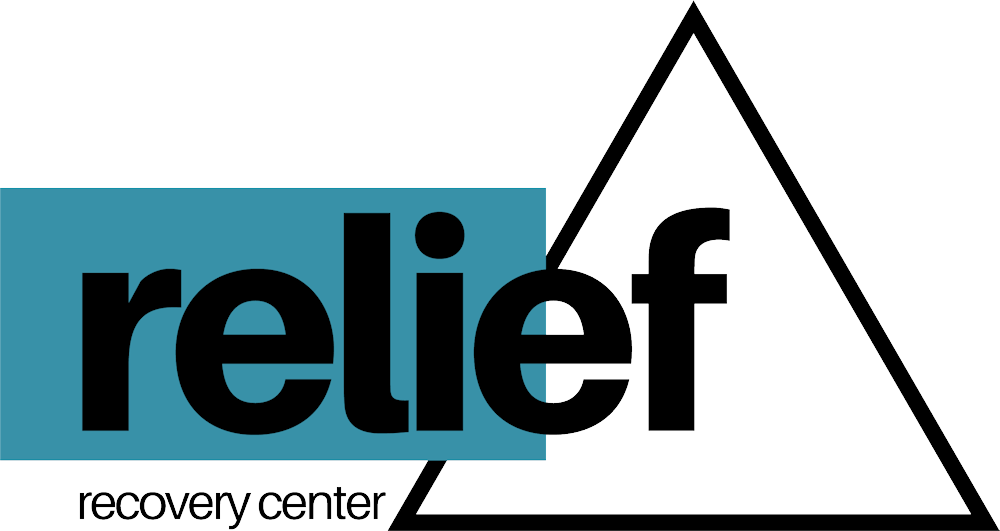Allergy Medications and Addiction
Allergy medications, especially antihistamines, are essential for managing both seasonal and chronic allergic reactions. They work by blocking histamine, a chemical responsible for triggering allergic symptoms such as sneezing, itching, and watery eyes.
Types of Antihistamines
The most common antihistamines are divided into two categories:
1. First-Generation (Sedating) Antihistamines:
- Diphenhydramine (Benadryl)
- Chlorpheniramine (Chlor-Trimeton)
2. Second-Generation (Non-Sedating) Antihistamines:
- Loratadine (Claritin)
- Cetirizine (Zyrtec)
- Fexofenadine (Allegra)
How Antihistamines Work
When these medications enter the body, they bind to histamine receptors, stopping the chemical from causing allergic reactions. While effective for relieving allergies, some antihistamines—particularly first-generation options—can cross the blood-brain barrier, resulting in drowsiness and potential dependency issues.
Importance of Understanding Allergy Medications
For individuals striving to maintain sobriety, it’s crucial to comprehend the effects and risks associated with these medications. Some allergy medications may interfere with recovery efforts due to their sedating properties and potential for addiction.
The Risks of Antihistamine Use in Recovery
Sedating antihistamines like diphenhydramine (Benadryl) present unique challenges for individuals in recovery. The sedative properties of these medications can trigger addictive behaviors, as users may experience a mild euphoric effect similar to other substances. This psychological response can lead to misuse, particularly among those with a history of substance dependence.
Tolerance and Dependence
Long-term use of sedating antihistamines often results in tolerance, requiring higher doses to achieve the same therapeutic effects. Users might find themselves taking more than the recommended amount, creating a cycle of dependence that mirrors addictive patterns.
Cognitive Effects
The cognitive impact of prolonged antihistamine use includes:
- Impaired memory and concentration
- Decreased alertness and reaction time
- Disrupted sleep-wake cycles
- Mental fog and confusion
These side effects can be particularly problematic during recovery, as mental clarity plays a crucial role in maintaining sobriety. Research indicates that regular use of sedating antihistamines may interfere with cognitive behavioral therapy and other recovery-focused treatments, which are essential for helping individuals avoid relapse and work toward a better life free of addiction.
Withdrawal Symptoms and Their Impact
Discontinuing antihistamine use can trigger a range of withdrawal symptoms, particularly after extended periods of regular consumption. These symptoms often appear within 48-72 hours after the last dose.
Common Withdrawal Effects
Physical Symptoms:
- Heightened allergy responses
- Sleep disturbances
- Nausea
- Muscle tension
- Tremors
Psychological Effects:
- Increased anxiety
- Irritability
- Mood swings
- Difficulty concentrating
While antihistamine withdrawal shares some similarities with opioid withdrawal, such as sleep disruption and anxiety, it typically presents with less severe physical symptoms. The psychological impact can be significant, as many individuals have relied on these medications for both allergy relief and sleep aid.
The duration of withdrawal varies based on usage patterns and individual factors. Most physical symptoms peak within the first week, while psychological effects may persist for several weeks. Some people report experiencing “rebound” allergies – temporarily intensified allergic reactions as their body readjusts to functioning without antihistamines.
Safe Medication Choices for Individuals in Recovery
Maintaining sobriety while managing allergies requires careful consideration of medication choices. Non-sedating antihistamines stand as the safest options for individuals in recovery, offering effective allergy relief without compromising sobriety.
Loratadine and cetirizine represent two widely recommended alternatives. These medications effectively combat allergy symptoms without causing drowsiness or creating dependency risks. They work by targeting histamine receptors without crossing the blood-brain barrier, minimizing cognitive effects.
Reading medication labels becomes crucial for recovery success. Many liquid medications contain alcohol as a preservative, while some combination products include potentially triggering ingredients. Check for terms like “alcohol-free” and scrutinize ingredient lists for hidden substances that might impact recovery.
When selecting allergy medications, consider these safety measures:
- Choose tablets over liquid formulations
- Opt for single-ingredient products
- Verify alcohol-free status
- Select 24-hour formulations to avoid frequent dosing
These precautions help maintain both allergy relief and recovery progress while minimizing potential triggers or complications. If you or a loved one is struggling with recovery and needs assistance, don’t hesitate to contact us at Relief Recovery. We are here to help you navigate through this challenging time.
Communicating with Healthcare Providers About Addiction History and Medication Management
Open communication with healthcare providers about addiction history creates a foundation for safe, effective allergy treatment. Disclosing past struggles with substance use allows medical professionals to make informed decisions about medication choices and dosages.
When meeting with healthcare providers, bring a list of specific concerns and questions about allergy medications. Share details about your recovery journey, including triggers and previous experiences with certain medications. This information helps providers understand your unique needs and risks.
Building a partnership with your healthcare team requires assertiveness. Request detailed explanations of prescribed medications, including potential side effects and addiction risks. Don’t hesitate to ask about alternative treatments or express concerns about specific medications.
Your pharmacist serves as another valuable resource. They can review medication ingredients, identify potential interactions, and suggest safer alternatives. Regular check-ins with both your doctor and pharmacist help maintain accountability and ensure your treatment plan aligns with your recovery goals.
Remember: healthcare providers can only offer appropriate care when they have complete information about your medical history. Your recovery journey is an essential part of that history. This is especially important when considering the impact of addiction on health, which can influence treatment plans significantly.
Alternative Approaches to Managing Allergies Beyond Medications
Managing allergies without relying on medications requires a comprehensive approach to wellness. Cognitive Behavioral Therapy (CBT) has shown promising results in helping individuals cope with allergy symptoms by addressing the psychological aspects of allergic reactions. Through CBT, patients learn stress management techniques and develop coping strategies that can reduce the severity of allergic responses.
Natural detoxification methods play a vital role in reducing medication dependency. A balanced diet rich in anti-inflammatory foods, regular exercise, and proper hydration can strengthen the immune system and minimize allergic reactions. Environmental modifications, such as using air purifiers, maintaining clean living spaces, and identifying trigger avoidance strategies, create a foundation for sustainable allergy management.
Support groups provide invaluable resources for individuals navigating sobriety and allergies. These communities share practical tips, emotional support, and alternative treatment experiences. Members often exchange insights about holistic approaches, including acupuncture, nasal irrigation, and herbal remedies that align with recovery goals.
Recognizing the Signs of Addiction to Allergy Medications and Seeking Help
Addiction to allergy medications often manifests through subtle behavioral changes. Watch for signs such as taking higher doses than prescribed, experiencing anxiety when medication isn’t available, or doctor shopping to obtain multiple prescriptions.
Physical symptoms might include:
- Increased tolerance to medication
- Sleep disturbances
- Mood swings
- Memory problems
- Difficulty concentrating
If you notice these patterns in yourself or someone else, taking immediate action is crucial. Start by reaching out to a healthcare provider who specializes in substance abuse treatment. They can assess the situation and recommend appropriate treatment options.
Several resources are available for support:
- Local Support Groups: NA (Narcotics Anonymous) meetings
- Professional Counseling: Licensed addiction specialists
- Medical Detox Programs: Supervised withdrawal management
A successful therapeutic approach such as CBT for substance abuse, may be the best option for some individuals.
Remember that seeking help for medication addiction isn’t a sign of weakness – it’s a brave step toward reclaiming control of your health and well-being.
Making Informed Decisions About Allergy Medications
Choosing the right allergy medication requires careful thought and professional advice. At Relief Recovery Center, our experienced healthcare providers understand the importance of managing allergies while also staying sober. We work with each person to create personalized treatment plans that prioritize both health and recovery.
Your path to safe allergy management starts with:
- A thorough evaluation of your medical history
- Assessment of current allergy symptoms
- Development of a recovery-conscious treatment strategy
Don’t hesitate to reach out to our team for support in navigating allergy medication choices. Your commitment to sobriety deserves the backing of knowledgeable professionals who understand your unique needs and concerns.



